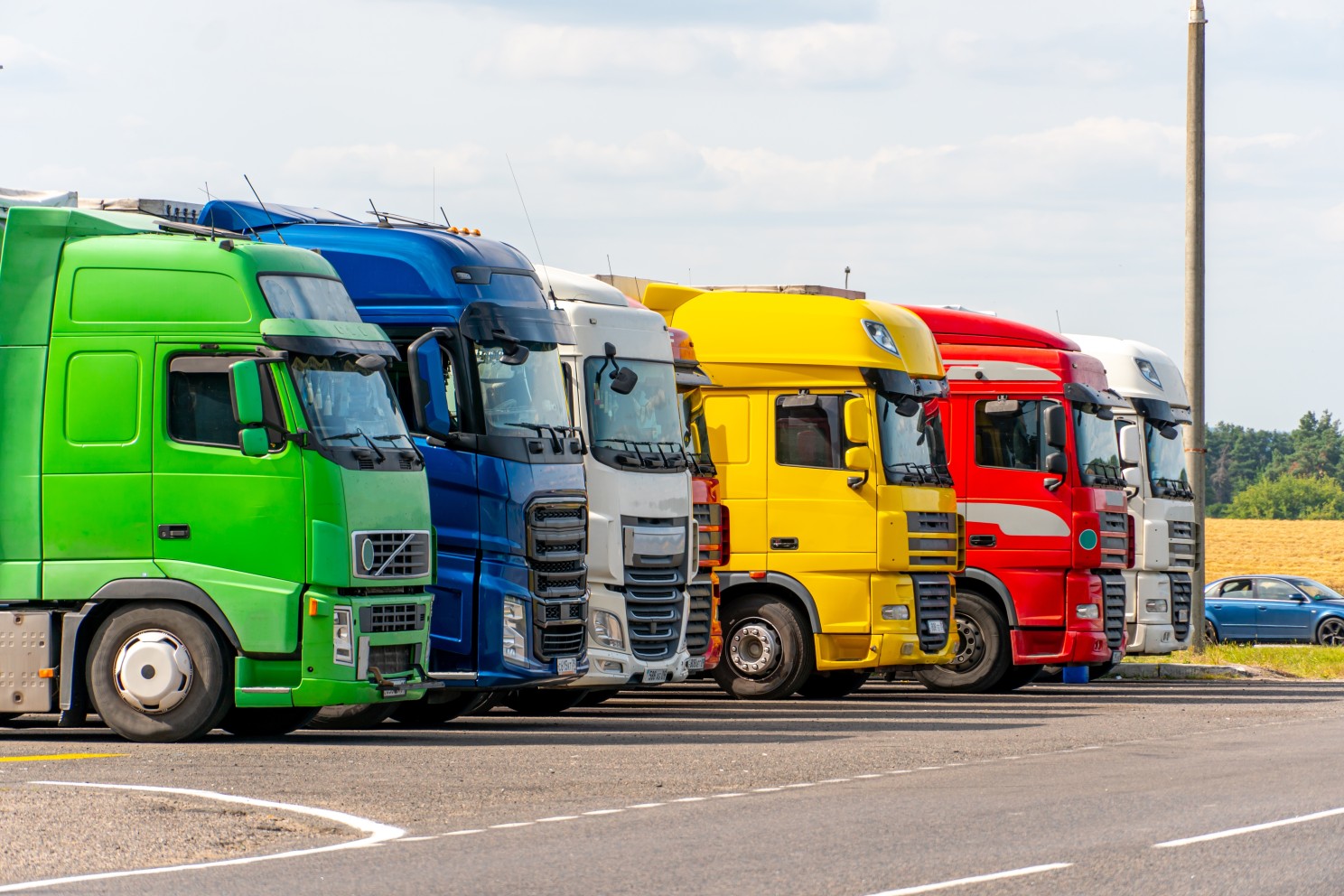
Susie Jones
Comment aborder la question de la diversité des conducteurs dans l'industrie
Créée: 21/08/2024
•
Mise à jour : 21/08/2024
Si nous vous demandions de décrire un chauffeur de camion, votre réponse pourrait donner l'image stéréotypée d'un homme blanc et âgé. Est-ce exact ? Traditionnellement, le secteur du transport routier est dominé par les hommes. Au fil des ans, le secteur s'est diversifié et a ouvert des opportunités aux femmes, aux personnes d'âges et d'horizons différents. La diversité s'accroît, mais des défis extérieurs tels que le Brexit et la pandémie ont stunnélisé cette évolution.
Les femmes dans l'industrie
Malgré une pénurie de [100 000 conducteurs de poids lourds au Royaume-Uni, seuls 1 à 3 %] (https://www.itv.com/news/2021-08-13/how-female-truckers-are-gearing-up-to-stem-shortfalls-in-the-haulage-industry) des camionneurs sont des femmes. Alors, pourquoi les femmes ne sont-elles pas plus nombreuses à s'engager dans la vie sur la route ?
La sécurité : On estime que [60%] (https://www.businessinsider.com/female-truckers-describe-how-to-stay-safe-trucker-shortage-2022-2?r=US&IR=T) des camionneuses se sont senties en danger au travail. Nombre d'entre elles ont exprimé le besoin de se garer sous un éclairage, de planifier leurs arrêts et de se munir d'une bombe lacrymogène.
Technologie et équipement : D'un point de vue ergonomique, les camions ont été conçus pour les hommes. Dans le passé, les femmes ont trouvé contraignants le fait d'atteindre les commandes, de régler les sièges et les aspects physiques du travail. Toutefois, grâce aux progrès technologiques, l'effort physique n'est plus un problème. La plupart des camions modernes sont équipés d'une direction assistée et d'une boîte de vitesses automatique pour faciliter les choses.
Malgré ces revers, les femmes font entendre leur voix et imposent des changements dans le secteur. Des conductrices comme [Jodi Smith] (https://www.instagram.com/pinktrucker90/?hl=en) sont de précieuses avocates du secteur. Jodi partage son expérience du camionnage en ligne et prouve que ce secteur n'est pas réservé aux hommes.
"La conduite d'un camion n'est pas un travail d'homme - je peux faire ce travail avec un jeu complet d'acryliques ! C'est assez physique mais ce n'est pas dur", déclare Jodi lorsque [nous lui avons parlé en 2021] (https://fleetpoint.org/driver-training-safety/driver-safety-2/are-women-the-future-of-trucking/). Forte de ses sept années d'expérience, Jodi continue de militer pour que davantage de femmes rejoignent la communauté des transporteurs routiers.
Un résultat qui pourrait conduire à des routes plus sûres - Les données de l'[American Transportation Research Institute] (https://truckingresearch.org/) montrent que les femmes sont des conductrices commerciales plus sûres. Les conducteurs masculins sont 20% plus susceptibles d'être impliqués dans un accident que leurs homologues féminines.

La diversité des âges dans le secteur
L'Office des statistiques nationales indique que l'âge moyen d'un conducteur de poids lourd est de 48 ans et que 47 % des conducteurs de camions au Royaume-Uni ont plus de 50 ans et envisagent de prendre bientôt leur retraite. Ces statistiques, qui s'ajoutent à la pénurie actuelle de conducteurs, indiquent que le secteur a besoin de jeunes conducteurs.
C'est plus facile à dire qu'à faire ; de nombreux jeunes conducteurs sont confrontés aux défis suivants :
Formation : L'obtention d'un permis de conduire commercial peut coûter jusqu'à 2 000 £.
L'assurance : Bien que l'âge minimum pour conduire un poids lourd au Royaume-Uni soit de 18 ans, nombreux sont ceux qui ont du mal à obtenir une assurance.
L'expérience : Certaines entreprises souhaitent engager des conducteurs expérimentés, ce qui peut constituer un inconvénient
Conditions : La vie des camionneurs peut être exigeante - les longues heures de travail et le temps passé loin de ses proches peuvent être dissuasifs. Cependant, la vie sur la route comporte de nombreux avantages, tels que la communauté, les voyages, la rémunération et la stabilité de l'emploi.

Les entreprises à la recherche de chauffeurs peuvent tirer profit de l'embauche de jeunes camionneurs. Ils sont plus susceptibles de s'adapter à un secteur en constante évolution. En outre, ils apprennent rapidement et accueillent favorablement les avancées technologiques. L'augmentation du nombre de jeunes conducteurs dans le secteur se traduira par une baisse des taux de rotation, ce qui réduira les coûts de l'entreprise. Cela permettra également au secteur de répondre à la demande croissante de biens et de services.
Cependant, quels sont les inconvénients pour vous si vous êtes un conducteur âgé ? Certains suggèrent que l'âge affecte les capacités physiques et cognitives, ce qui a un impact sur la capacité à conduire en toute sécurité. Ces capacités sont vitales pour les chauffeurs routiers, qui doivent faire face à de longues heures de travail, à des exigences physiques et à des situations stressantes.
La FMCSA a répondu à ces préoccupations. La réglementation impose aux conducteurs âgés de se soumettre à des examens médicaux fréquents et à des évaluations de conduite. Récemment, il a été rapporté qu'un [conducteur de camion de 90 ans] (https://www.bbc.co.uk/news/uk-england-south-yorkshire-64223431) de Sheffield continuait à conduire après avoir obtenu un certificat de bonne santé. Nombreux sont ceux qui affirment que les conducteurs âgés apportent des décennies d'expérience et de connaissances, suggérant que s'ils sont en bonne santé, il ne devrait pas y avoir d'obstacle à l'emploi.
Comment la diversité peut-elle résoudre la pénurie actuelle de conducteurs ?
En 2022, l'Office for Veterans' Affairs a versé 100 000 livres sterling à l'organisation caritative Veterans into Logistics. Celle-ci offre aux anciens combattants la possibilité de devenir conducteurs de poids lourds. Ce financement a permis à l'association d'augmenter considérablement ses formations annuelles, d'accroître ses effectifs et de tripler le nombre de formations disponibles. XPO, ASDA et Muller Milk & Ingredients sont autant d'entreprises qui recrutent activement des vétérans directement après leur formation.
En outre, ASDA a versé 40 000 livres sterling pour contribuer à la poursuite de la formation. Le soutien apporté à des organisations caritatives telles que Veterans into Logistics permet de créer une culture plus diversifiée au sein de la profession de chauffeur routier, tout en luttant activement contre la pénurie actuelle de chauffeurs.
Que peut-on faire pour attirer davantage de diversité ?
La diversité de la main-d'œuvre ouvre les entreprises à des points de vue et des expériences différents. Que peuvent faire les entreprises pour attirer une main-d'œuvre diversifiée ?
Investir dans la formation : Les formations destinées à éduquer les employés sur des sujets tels que les préjugés implicites, l'inclusion sur le lieu de travail, la prévention de la discrimination et la manière de soutenir une main-d'œuvre diversifiée peuvent avoir un effet positif.
Investissez dans un processus d'embauche inclusif : L'anonymisation du CV d'un candidat peut réduire les préjugés inconscients.
Promouvoir une culture d'intégration : Communiquez aux candidats potentiels la manière dont vous abordez les questions actuelles de diversité et d'inclusion.
Tendez la main aux groupes sous-représentés dans ce secteur.
La promotion et l'accueil d'une culture diversifiée dans le secteur de la conduite de camions peuvent être très bénéfiques pour l'industrie. Non seulement cela contribuera à créer un environnement de travail plus inclusif et plus accueillant, mais cela permettra également de faire face à la pénurie actuelle de chauffeurs. Les entreprises de transport routier ont la responsabilité d'accueillir la diversité tout autant que les chauffeurs routiers.

Quel pays est en demande de chauffeurs routiers ?
Un rapport publié en décembre 2022 indique que les pénuries en Europe ont augmenté de 42 % entre 2020 et 2021. Le Royaume-Uni arrive en tête avec 100 000 postes de conducteurs vacants. Le Mexique et la Chine sont également en tête de liste, avec une augmentation de 30 % de la pénurie au Mexique et de 140 % en Chine.
Aurons-nous besoin de chauffeurs routiers à l'avenir ?
L'introduction des camions à conduite autonome a laissé entendre à beaucoup qu'il n'y avait plus d'avenir pour les chauffeurs routiers. Pourtant, c'est loin d'être le cas.
Les camions autonomes seront déployés progressivement dans des régions désignées. La probabilité que cela affecte la plupart des conducteurs est faible.
Si les camions autonomes étaient mis en œuvre dans le monde entier, les chauffeurs resteraient nécessaires. La demande de chauffeurs de camion ne fera qu'augmenter, car il y a trop de choses qui pourraient se produire s'il n'y avait pas de chauffeur dans la cabine.
Quels sont les stéréotypes sur les chauffeurs routiers ?
Nous connaissons l'importance des chauffeurs routiers, mais aux yeux de certains, des stéréotypes négatifs sont encore associés à ce secteur - cette image peut être due à une mauvaise représentation dans les médias et parfois à quelques chauffeurs inexpérimentés. Mais qu'est-ce que cette image stéréotypée ? Et pourquoi est-elle erronée ?
Surpoids - Certains relais routiers proposent de la restauration rapide malsaine, ce qui pourrait vous donner l'impression que les chauffeurs routiers ne consomment que cela. Or, ce n'est certainement pas la norme. Manger sainement sur la route peut être un défi, mais beaucoup s'en tiennent à un régime alimentaire équilibré et font de l'exercice régulièrement. Consultez nos conseils pour [manger sainement sur la route] (https://www.linkedin.com/pulse/how-healthy-truck-driver-snap-account/?trackingId=g91E6xbfIMoJTora4dSipQ%3D%3D).
Mauvais conducteurs - Un stéréotype qui ne pourrait être plus éloigné de la vérité. Les chauffeurs routiers professionnels prennent la sécurité très au sérieux. Ils respectent souvent les limitations de vitesse, redoublent de prudence par mauvais temps et laissent beaucoup d'espace entre eux et les autres conducteurs.
Faute de goût - Nous sommes tous victimes de la rage au volant et les camionneurs ne font pas exception à la règle. Cependant, il est injuste d'attribuer ce stéréotype aux seuls camionneurs.
Tous les camionneurs sont des hommes - Les hommes sont plus nombreux que les femmes dans ce secteur, mais le nombre de femmes conductrices de camions augmente.


